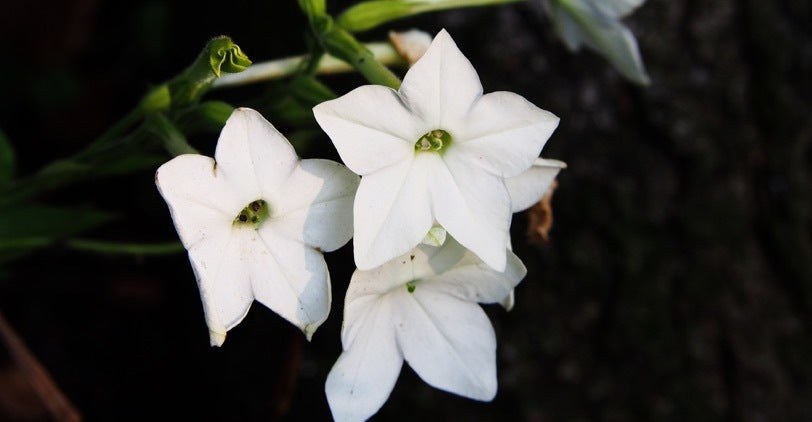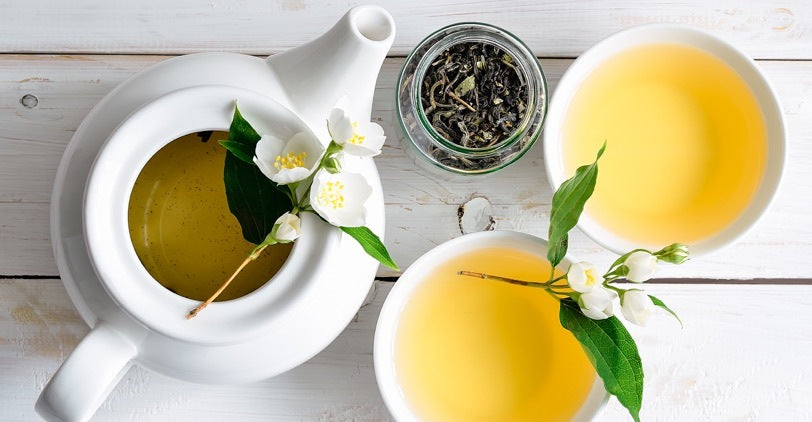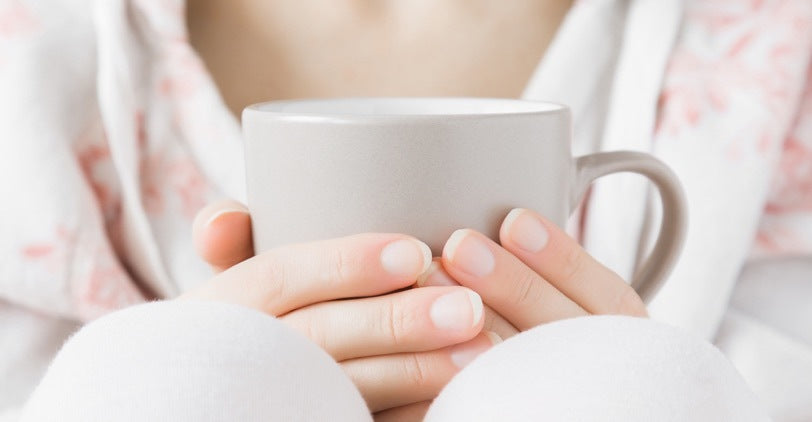With the exception of water itself, tea is the world’s most ancient beverage, with thousands of years of history behind it. Its depth of flavor and sense of ritual give us a reason to slow down and savor its delicate aroma and flavor. Jasmine tea in particular is one of the world’s most special blends, originally produced in China more than a millennium ago. Today, it offers a subtle boost of relaxed energy wrapped up in a beautiful sensory experience.
HOW JASMINE TEA IS MADE
To make blended teas, producers begin with a common base like green, black, or white tea leaves, and combine them with a preferred flavor. When tea makers develop jasmine tea, they typically use a green tea base and scent the leaves with jasmine flowers. This process takes place in the evening since jasmine flowers produce their most potent scent after the sun sets. Tea makers place the flowers on the leaves in layers to let the blooms release their scent directly into the tea leaves. This delicate process may be repeated several times to perfume the tea to its desired potency.

Jasmine flowers produce their most potent scent after the sun sets.
HOW MUCH CAFFEINE IS IN JASMINE TEA?
More than 60 different plants produce caffeine naturally, but the ingredient is also made synthetically. In its most isolated form, caffeine presents itself as a bitter white powder. Most people are familiar with caffeine as a stimulant that makes the brain feel more alert even during a period of lethargy.
Since most jasmine blends are made with green tea, they tend to have less caffeine than black tea or coffee. Specifically, an 8-ounce cup of jasmine green tea contains around 25 milligrams of caffeine -- around a quarter the amount found in a brewed cup of coffee. By contrast, an herbal jasmine tisane has no caffeine, and a jasmine blend made with black tea contains about 45 grams. The Mayo Clinic advises most healthy adults can safely ingest up to 400 milligrams of caffeine each day.

A BRIEF HISTORY OF CAFFEINE
People have used caffeine in various forms for thousands of years. According to one legend, the stimulating substance was discovered by a goat herder who noticed the animals exhibiting more energy after they ate certain wild berries. Another legend tells of several small leaves blowing from a nearby bush into a cup of hot water held by a Chinese emperor who thereby discovered the perks of drinking tea. In 1820, a German scientist named Friedrich Ferdinand Runge extracted caffeine from a cocoa bean, marking the first known instance of a person obtaining the stimulating substance in its purest form.

When taking a sip of jasmine tea, pay attention to its subtle flavor.
SOME FINAL THOUGHTS
Pleasurable moments in life are meant to be savored, but in today’s fast-paced world, slowing down to delight in everyday joys can be a tricky endeavor. Tea helps us learn how to live in the present and practice gratitude for small daily indulgences. When taking a sip of jasmine tea, pay attention to its subtle flavor and allow yourself to discover the elixir’s individual notes. Consider the complexities of the tea’s journey from the hillside into your hands, and know that Tea Forte only selects the finest ingredients in its quest to deliver an exceptional tea experience each time you prepare a cup.

Slowing down to delight in everyday with a perfect cup of Jasmine tea.